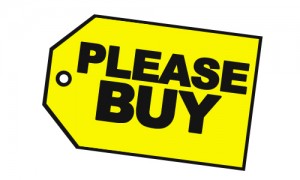So I have been thinking seriously about what I might say to you in this Baccalaureate service. Frankly, I’m not sure anyone from my generation should be saying anything to your generation except, “We’re sorry. We’re really sorry for the mess you’re inheriting. We are sorry for the war in Iraq. For the huge debts you will have to pay for without getting a new social infrastructure in return. We’re sorry for the polarized country. The corporate scandals. The corrupt politics. Our imperiled democracy. We’re sorry for the sprawl and our addiction to oil and for all those toxins in the environment. Sorry about all this, class of 2006. Good luck cleaning it up.”
…
Of course that’s not the only scenario. You can Google your way to a lot of optimistic possibilities. For one, the digital revolution that will transform how we do business and live our lives, including active intelligent wireless devices that in just a short time could link every aspect of our physical world and even human brains, creating hundreds of thousands of small-scale business opportunities. There are medical breakthroughs that will conquer many ills and extend longevity. Economic changes will lift hundreds of millions of people out of absolute poverty in the next 25 years, dwarfing anything that’s come along in the previous 100 years. These are possible scenarios, too. But I’m a journalist, not a prophet. I can’t say which of these scenarios will prove true. You won’t be bored, that’s for sure. I just wish I were going to be around to see what you do with the peril and the promise.
Since I won’t be around, I want to take this opportunity to say a thing or two that have nothing to do with my professional work as a journalist. What I have to say today is very personal. Here it is:
If the world confuses you a little, it confuses me a lot. When I graduated fifty years ago I thought I had the answers. But life is where you get your answers questioned, and the odds are that you can look forward to being even more perplexed fifty years from now than you are at this very moment. If your parents level with you, truly speak their hearts, I suspect they would tell you life confuses them, too, and that it rarely turns out the way you thought it would.
I find I am alternatively afraid, cantankerous, bewildered, often hostile, sometimes gracious, and battered by a hundred new sensations every day. I can be filled with a pessimism as gloomy as the depth of the middle ages, yet deep within me I’m possessed of a hope that simply won’t quit. A friend on Wall Street said one day that he was optimistic about the market, and I asked him, “Then why do you look so worried?” He replied, “Because I’m not sure my optimism is justified.” Neither am I. So I vacillate between the determination to act, to change things, and the desire to retreat into the snuggeries of self, family and friends.
I wonder if any of us in this great, disputatious, over-analyzed, over-televised and under-tenderized country know what the deuce we’re talking about, myself included. All my illusions are up for grabs, and I find myself re-assessing many of the assumptions that served me comfortable much of my life.
…
The hardest struggle of all is to reconcile life’s polar realities. I love books, Beethoven, and chocolate brownies. Yet how do I justify my pleasure in these in a world where millions are illiterate, the music never plays, and children go hungry through the night? How do I live sanely in a world so unsafe for so many?
I don’t know what they taught you here at Hamilton about all this, but I trust you are not leaving here without thinking about how you will respond to the dissonance in our culture, the rivalry between beauty and bestiality in the world, and the conflicts in your own soul. All of us have to choose sides on this journey. But the question is not so much who we are going to fight against as it is which side of our own nature will we nurture: The side that can grow weary and even cynical and believe that everything is futile, or the side that for all the vulgarity, brutality, and cruelty, yearns to affirm, connect and signify. Albert Camus got it right: There is beauty in the world as well as humiliation, “And we have to strive, hard as it is, not to be unfaithful…in the presence of one or the other.
That’s really what brings me here this afternoon. I did put myself in your place, and asked what I’d want a stranger from another generation to tell me if I had to sit through his speech. Well, I’d want to hear the truth: The truth is, life’s a tough act, the world’s a hard place, and along the way you will meet a fair share of fools, knaves and clowns–even act the fool yourself from time to time when your guard is down or you’ve had too much wine. I’d like to be told that I will experience separation, loss and betrayal, that I’ll wonder at times where have all the flowers gone.
I would want to be told that while life includes a lot of luck, life is more than luck. It is sacrifice, study, and work; appointments kept, deadlines met, promises honored. I’d like to be told that it’s okay to love your country right or wrong, but it’s not right to be silent when your country is wrong. And I would like to be encouraged not to give up on the American experience. To remember that the same culture which produced the Ku Klux Klan, Tom DeLay and Abu Ghraib, also brought forth the Peace Corps, Martin Luther King and Hamilton College.
…
Let me tell you one of my favorite stories. I read it a long time ago and it’s stayed with me. There was a man named Shalom Aleicheim. He was one of the accursed of the Earth. Every misfortune imaginable befell him. He lost his wife, his children neglected him, his house burned down, his job disappeared–everything he touched turned to dust. Yet through all this Shalom kept returning good for evil everywhere he could until he died. When the angels heard he was arriving at Heaven’s gate, they hurried down to greet him. Even the Lord was there, so great was this man’s fame for goodness. It was the custom in Heaven that every newcomer was interrogated by the prosecuting angel, to assure that all trespasses on Earth had been atoned. But when Shalom reached those gates, the prosecuting angel arose, and for the first time in the memory of Heaven, said, “There are no charges.” Then the angel for the defense arose and rehearsed all the hardships this man had endured and recounted how in all the difficult circumstances of his life he had remained true to himself and returned good for evil.
When the angel was finished, the Lord said, “Not since Job himself have we heard of a life such as this one.” And then, turning to Shalom, he said, “Ask, and it shall be given to you.”
The old man raised his eyes and said, “Well, if I could start every day with a hot buttered roll…” And at that the Lord and all the angels wept, at the preciousness of what he was asking for, at the beauty of simple things : a buttered roll, a clean bed, a beautiful summer day, someone to love and be loved by. These supply joy and meaning on this earthly journey.
So I brought this with me. It’s an ordinary breakfast roll, perhaps one like Shalom asked for. I brought it because it drives home the last thing I want to say to you. Bread is the great re-enforcer of the reality principle. Bread is life. But if you’re like me you have a thousand and more times repeated the ordinary experience of eating bread without a thought for the process that brings it to your table. The reality is physical: I need this bread to live. But the reality is also social: I need others to provide the bread. I depend for bread on hundreds of people I don’t know and will never meet. If they fail me, I go hungry. If I offer them nothing of value in exchange for their loaf, I betray them. The people who grow the wheat, process and store the grain, and transport it from farm to city; who bake it, package it, and market it–these people and I are bound together in an intricate reciprocal bargain. We exchange value.
This reciprocity sustains us. If you doubt it, look around you. Hamilton College was raised here by people before your time, people you’ll never know, who were nonetheless thinking of you before you were born. You have received what they built and bequeathed, and in your time you will give something back. That’s the deal. On and on it goes, from generation to generation.
Civilization sustains and supports us. The core of its value is bread. But bread is its great metaphor. All my life I’ve prayed the Lord’s Prayer, and I’ve never prayed, “Give me this day my daily bread.” It is always, “Give us this day our daily bread.” Bread and life are shared realities. They do not happen in isolation. Civilization is an unnatural act. We have to make it happen, you and I, together with all the other strangers. And because we and strangers have to agree on the difference between a horse thief and a horse trader, the distinction is ethical. Without it, a society becomes a war against all, and a market for the wolves becomes a slaughter for the lambs. My generation hasn’t done the best job at honoring this ethical bargain, and our failure explains the mess we’re handing over to you. You may be our last chance to get it right. So good luck, Godspeed, enjoy these last few hours together, and don’t forget to pass the bread.
Thanks, Amy.




